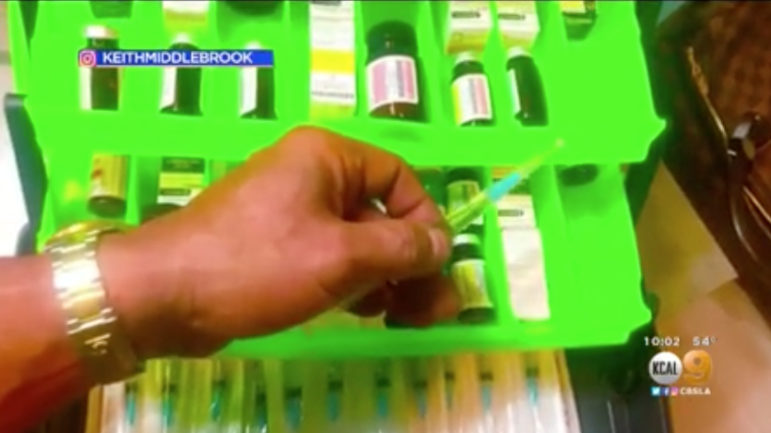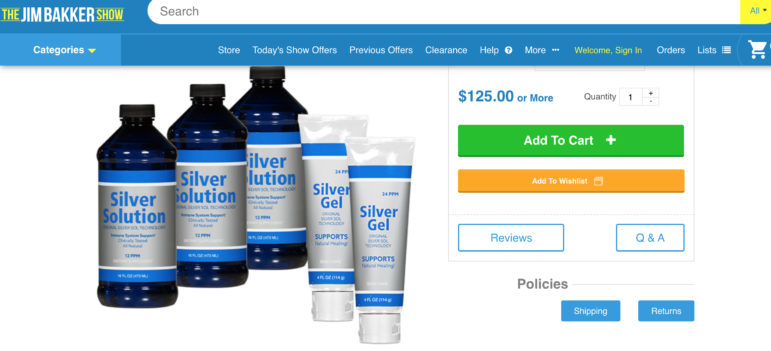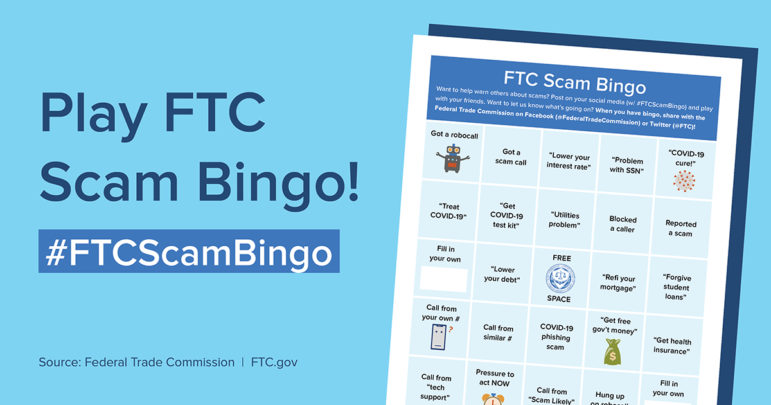Pandemic Related Fraud Popping Up
Bogus vaccines and cure all's. Claims of virus killing toothpaste.

Keith Lawrence Middlebrook has been charged by federal prosecutors with trying to peddle a fake coronavirus cure to his social media followers and soliciting investors for the scheme. Photo from Keith Middlebrook Instagram account.
Vaccine kits. “Silver Solution” treatment. Even coronavirus-fighting toothpaste.
The swindles have begun. As Americans struggle to cope with the spread of COVID-19, they will also need to brace themselves for “disaster fraud” — those cons that rely on post-catastrophe chaos to separate people from their money.
And on Wednesday, the U.S. attorney in Los Angeles filed the first federal case for alleged coronavirus fraud. Prosecutors charge that an actor with a history of fraud was trying to line up investors for pills that he claimed would make people immune to the virus and injections for those already infected.
Indeed, fraud is now a central part of the U.S. government’s response to the pandemic. This month, the Justice Department ordered U.S. attorneys across the country to prioritize the issue and to each appoint a coronavirus fraud coordinator, spurring announcements of legal crackdowns from Vermont to Louisiana.
“They’re using people’s fears, anxiety, and confusion about what’s going on,” said Federal Trade Commission consumer education specialist Colleen Tressler of the fraudsters. “Things are changing daily, if not more frequently. People are getting things from a variety of sources.”

In an Instagram video, Keith Lawrence Middlebrook claimed he had a pill to make people immune to the coronavirus and injections for those already infected. Local news station KCAL in Los Angeles broadcast excerpts of the video, which has since been deleted from Middlebrook’s Instagram. Photo courtesy of KCAL Los Angeles.
U.S. Attorney Scott C. Blader of the Western District of Wisconsin vowed to crack down on such deception.
“My office will work with our federal, state, and local law enforcement partners to swiftly investigate and prosecute any criminal conduct related to COVID-19,” he said in a March 21 statement. “Those who take advantage of this crisis to engage in fraud schemes will be held accountable for preying on our communities.”
COVID-19 scams alleged
Wisconsin state regulators are also looking for scammers. The Wisconsin Department of Agriculture, Trade and Consumer Protection has received four coronavirus-related complaints on its consumer hotline, spokeswoman Ti Gauger said. The complaints related to medical supplies, treatment, a possible charity-type scam and “some phishing items.”
The agency continues to field far more consumer complaints related to price gouging, Gauger added.

This March 6, 2020 screenshot from the website of “The Jim Bakker Show” includes an offer for Silver Solution and Silver Gel, two products the show had offered as preventions for contracting COVID-19. The federal government ordered the televangelist to stop the deceptive marketing. The product is no longer advertised on Bakker’s site. Photo from the The Jim Bakker Show website.
Earlier in March, the FTC and the Food and Drug Administration issued joint warnings to seven companies selling products they claimed could treat or prevent COVID-19.
Among them was “The Jim Bakker Show,” hosted by the disgraced televangelist, which had advertised a colloidal silver called Silver Solution. Already the target of a lawsuit from the state of Missouri and a cease-and-desist letter from the New York attorney general’s office, Bakker was forced to stop selling the product on his website and Facebook page.
New York’s attorney general also issued a cease-and-desist order to right wing conspiracist Alex Jones, who was selling so-called anti-coronavirus toothpaste on his radio show and website, Infowars.
Schemes have proliferated so quickly that the Federal Trade Commission even released a tongue-in-cheek #FTCScamBingo card on which you can play along by marking off common scams like “Treat COVID-19”, “Get COVID-19 test kit”, and “A COVID-19 cure!”
Disasters fuel fraud
Disaster fraud is a phenomenon that reliably crops up every time a natural or man-made crisis strikes — and, say fraud experts, tends to fall into several major categories.
There are fake charitable solicitations, which tend to arise in the early stages of recovery. In the days after 9/11, dozens of websites cropped up claiming to take donations for victims, only to keep the money. This sort of fraud has become even more prevalent with crowdfunding platforms like GoFundMe, said Jason Zirkle, a training director with the Association of Certified Fraud Examiners.
Identity theft is also common, as victims and workers struggle to understand who to give their information to for aid programs in the midst of the national emergency.

The Federal Trade Commission created a tongue-in-cheek bingo game to illustrate the range of possible scams surrounding the coronavirus pandemic. Image from the Federal Trade Commission.
The chaos that unfolded after Hurricane Katrina provided what would be the major turning point in how the United States deals with disaster fraud. Katrina, said Zirkle, “was just so massive, it just caused an unprecedented amount of property damage” — the foundation for many types of disaster fraud.
That same year, the National Center for Disaster Fraud was established, prosecuting 1,300 Katrina-related fraud cases spanning 49 states. Since then, the center’s mandate has expanded to cover fraud related to any and all natural and manmade disasters. It hosts a hotline and relies largely, like most efforts to track and prosecute disaster fraud, on tips from the public.
Then came COVID-19.
The crisis is following a slightly different fraud script than many other disasters. With no real property or infrastructure damage, most pandemic-related scams are information-related.

Alex Jones claimed during the March 10 broadcast of “The Alex Jones Show” that his toothpaste “kills every virus” and that “the Pentagon uses the product we have.” New York officials have ordered Jones to stop marketing toothpaste, dietary supplements, creams and other products to prevent or cure COVID-19. Photo from Infowars.
Phishing and malware scams preying on fears of the coronavirus started cropping up as early as January 2020, said Zirkle, noting that these are the most common of the COVID-19-related schemes.
Usually, he said, it starts as a sophisticated, authentic-looking email promising updated information on the pandemic from the Centers for Disease Control and Prevention or the World Health Organization, provided you enter your email address and password. From there, the scam forwards you to the actual CDC and WHO websites as it downloads malware onto your computer or mines your data.
“You’ve got a lot of people that are at home, and a lot of people want updated news about coronavirus,” Zirkle said. “It’s a great time to trick people into clicking a link.”
Despite the efforts of various agencies, disaster fraud persists as a predictable phenomenon. And with the unprecedented nature and scale of the COVID-19 disaster, that new audience just might be everyone.
“Everybody’s looking the other way, even law enforcement,” said Zirkle. “It’s just a great time for fraudsters right now.”
This story was reported by FairWarning (www.FairWarning.org), a nonprofit news organization based in Pasadena, California, that focuses on public health, consumer and environmental issues. FairWarning’s Eli Wolfe contributed reporting. Wisconsin Watch (www.WisconsinWatch.org) distributed the story, with Jim Malewitz and Dee J. Hall contributing reporting from Wisconsin. Wisconsin Watch collaborates with WPR, PBS Wisconsin, other news media and the University of Wisconsin-Madison School of Journalism and Mass Communication. All works created, published, posted or disseminated by Wisconsin Watch do not necessarily reflect the views or opinions of UW-Madison or any of its affiliates.
More about the Coronavirus Pandemic
- Governors Tony Evers, JB Pritzker, Tim Walz, and Gretchen Whitmer Issue a Joint Statement Concerning Reports that Donald Trump Gave Russian Dictator Putin American COVID-19 Supplies - Gov. Tony Evers - Oct 11th, 2024
- MHD Release: Milwaukee Health Department Launches COVID-19 Wastewater Testing Dashboard - City of Milwaukee Health Department - Jan 23rd, 2024
- Milwaukee County Announces New Policies Related to COVID-19 Pandemic - David Crowley - May 9th, 2023
- DHS Details End of Emergency COVID-19 Response - Wisconsin Department of Health Services - Apr 26th, 2023
- Milwaukee Health Department Announces Upcoming Changes to COVID-19 Services - City of Milwaukee Health Department - Mar 17th, 2023
- Fitzgerald Applauds Passage of COVID-19 Origin Act - U.S. Rep. Scott Fitzgerald - Mar 10th, 2023
- DHS Expands Free COVID-19 Testing Program - Wisconsin Department of Health Services - Feb 10th, 2023
- MKE County: COVID-19 Hospitalizations Rising - Graham Kilmer - Jan 16th, 2023
- Not Enough Getting Bivalent Booster Shots, State Health Officials Warn - Gaby Vinick - Dec 26th, 2022
- Nearly All Wisconsinites Age 6 Months and Older Now Eligible for Updated COVID-19 Vaccine - Wisconsin Department of Health Services - Dec 15th, 2022
Read more about Coronavirus Pandemic here
-
Legislators Agree on Postpartum Medicaid Expansion
 Jan 22nd, 2025 by Hallie Claflin
Jan 22nd, 2025 by Hallie Claflin
-
Inferior Care Feared As Counties Privatize Nursing Homes
 Dec 15th, 2024 by Addie Costello
Dec 15th, 2024 by Addie Costello
-
Wisconsin Lacks Clear System for Tracking Police Caught Lying
 May 9th, 2024 by Jacob Resneck
May 9th, 2024 by Jacob Resneck





















